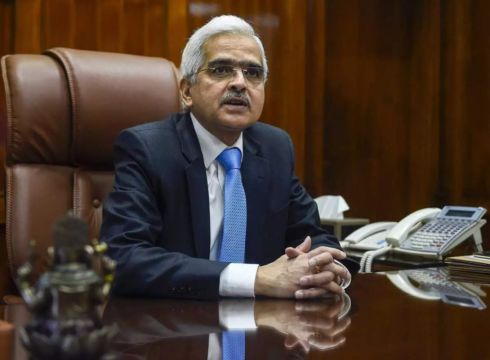There is no difference between CBDC and banknotes as far as the law is concerned: RBI governor Shaktikanta Das
To ensure the anonymity of CBDC, the central bank is looking at a technological solution: Deputy governor T Rabi Sankar
According to recent RBI statistics, the wholesale CBDC recorded a daily average of INR 325 Cr in November
Inc42 Daily Brief
Stay Ahead With Daily News & Analysis on India’s Tech & Startup Economy
The Reserve Bank of India (RBI) said that the central bank digital currency (CBDC), or the e-rupee, will be as anonymous as the currency note and would have all the relevant laws applicable to it as the currency notes.
Speaking after the monetary policy announcement on Wednesday (November 7), the RBI governor Shaktikanta Das said, “The amendment to the RBI act with regard to the CBDC says that currency will also include digital currency.” Das added that there is no difference between CBDC and banknotes as far as the law is concerned.
To ensure the anonymity of CBDC, the central bank is looking at a technological solution, said deputy governor T Rabi Sankar.
Ensuring Anonymity In CBDC Transactions
“Fundamental feature of cash is anonymity, the reason it’s still being used in several developed countries is that people love their privacy,” said Sankar, adding that there are various solutions to ensure anonymity in the case of digital currency.
“We can look at largely a technological solution, we understand it’s possible to do that. It is also possible to get a legal provision to ensure anonymity. What exactly will happen depends upon how things evolve,” the deputy governor added.
Sankar also said that the RBI can get a legal provision to ensure anonymity. He added that while it depends on how things evolve, anonymity is a basic feature of currency and the RBI would have to ensure that.
In a typical CBDC transaction, a user can transfer money to another user by simply making a wallet-to-wallet transaction, without the need for a bank’s involvement. This means that the transaction will not have a digital footprint, ensuring anonymity.
The concerns about anonymity in CBDC have been shared by major stakeholders in the field. India’s largest bank, the State Bank of India (SBI) said in a media statement earlier this month that anonymity will play a crucial role in ensuring the success of the e-rupee.
“The anonymity factor is critical for its acceptance. It collaborates, complements and completes the currency architecture in vogue, while also incubating further innovation,” said Dinesh Khara, the chairman of SBI. For now, the government has mandated the user furnish proof of identity in the form of a Permanent Account Number (PAN) to complete a transaction above INR 50,000.
The CBDC was started as a pilot project on November 1, initially open for wholesale users. The RBI extended the scope of the CBDC to include consumers and retail transactions from December 1 onwards.
The RBI has begun experiments on both the wholesale and retail versions of the e-rupee using blockchain distributed-ledger technology, as an alternative to cash.
According to recent RBI statistics, the wholesale CBDC recorded a daily average of INR 325 Cr in November, and the retail CDBC recorded INR 3 Cr worth of digital currencies in the first two days of the pilot.
Note: We at Inc42 take our ethics very seriously. More information about it can be found here.


